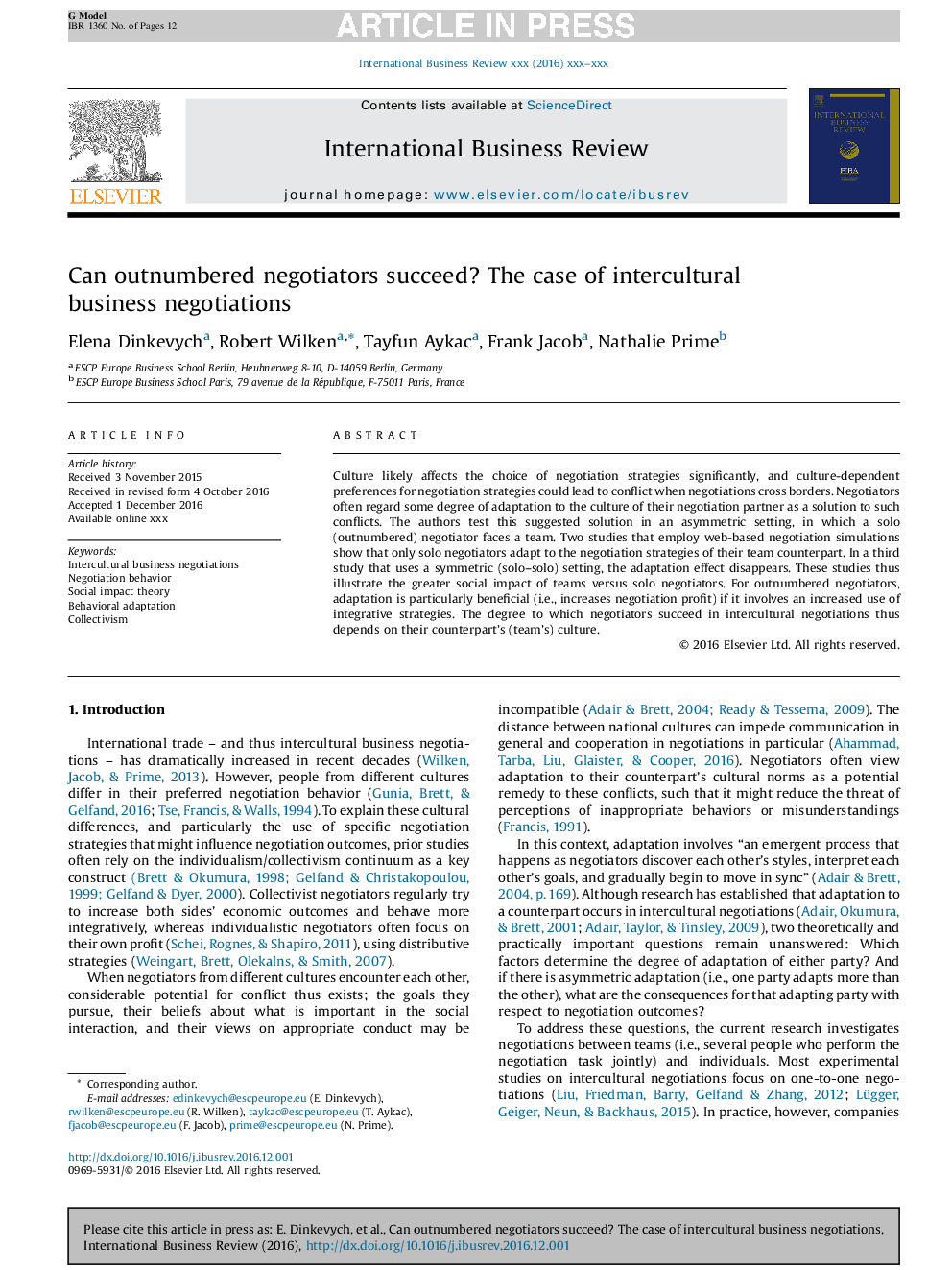| Article ID | Journal | Published Year | Pages | File Type |
|---|---|---|---|---|
| 5106975 | International Business Review | 2017 | 12 Pages |
Abstract
Culture likely affects the choice of negotiation strategies significantly, and culture-dependent preferences for negotiation strategies could lead to conflict when negotiations cross borders. Negotiators often regard some degree of adaptation to the culture of their negotiation partner as a solution to such conflicts. The authors test this suggested solution in an asymmetric setting, in which a solo (outnumbered) negotiator faces a team. Two studies that employ web-based negotiation simulations show that only solo negotiators adapt to the negotiation strategies of their team counterpart. In a third study that uses a symmetric (solo-solo) setting, the adaptation effect disappears. These studies thus illustrate the greater social impact of teams versus solo negotiators. For outnumbered negotiators, adaptation is particularly beneficial (i.e., increases negotiation profit) if it involves an increased use of integrative strategies. The degree to which negotiators succeed in intercultural negotiations thus depends on their counterpart's (team's) culture.
Related Topics
Social Sciences and Humanities
Business, Management and Accounting
Business and International Management
Authors
Elena Dinkevych, Robert Wilken, Tayfun Aykac, Frank Jacob, Nathalie Prime,
